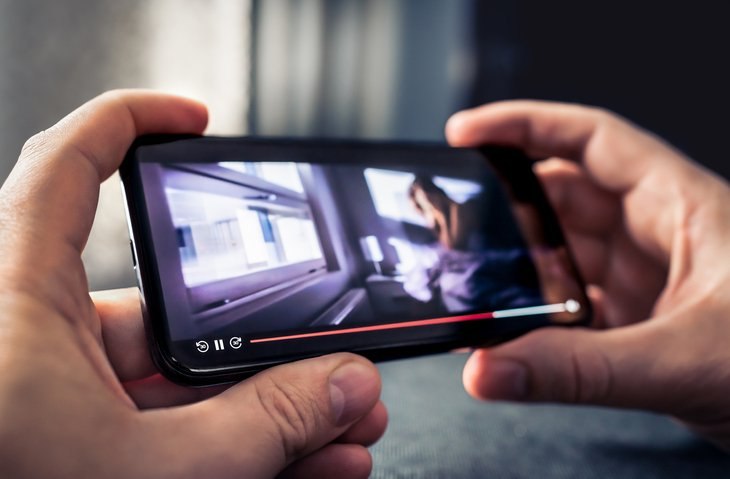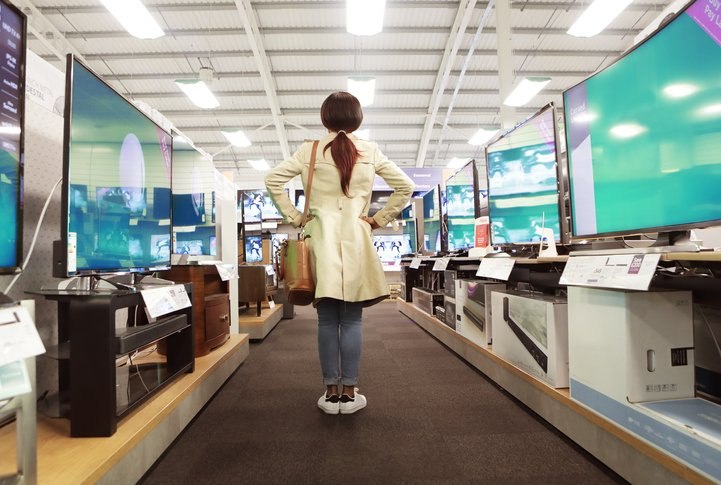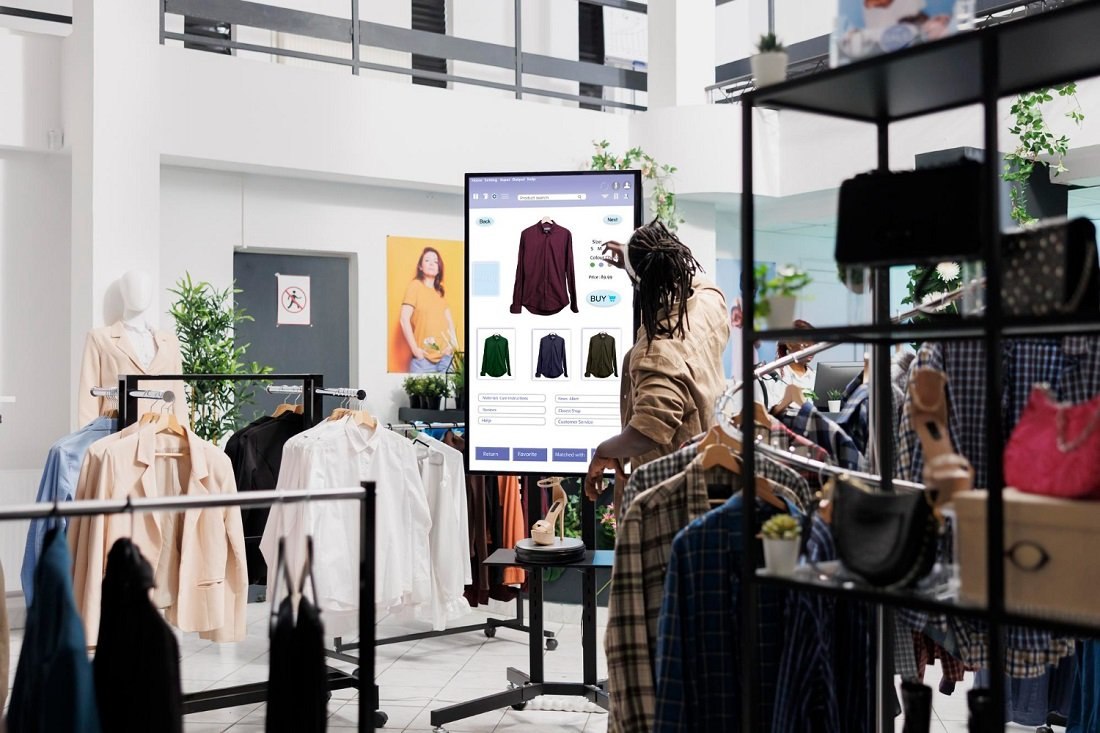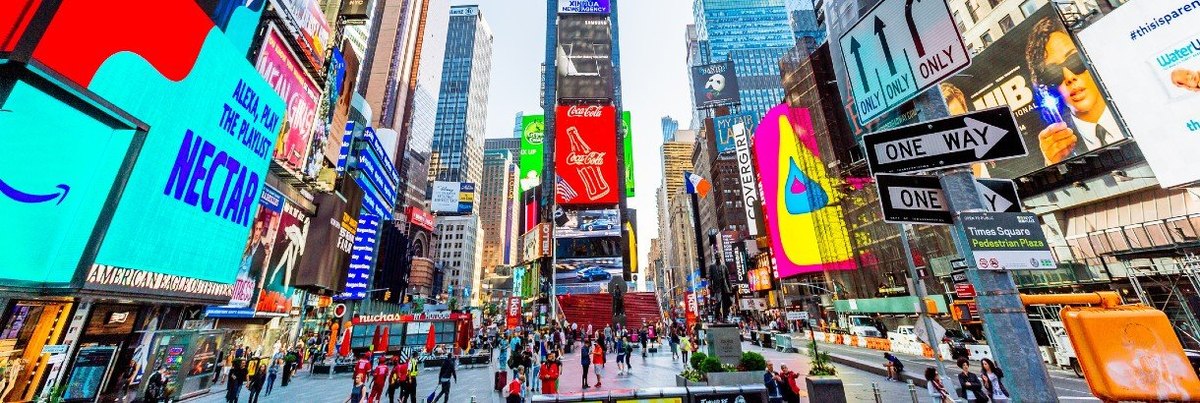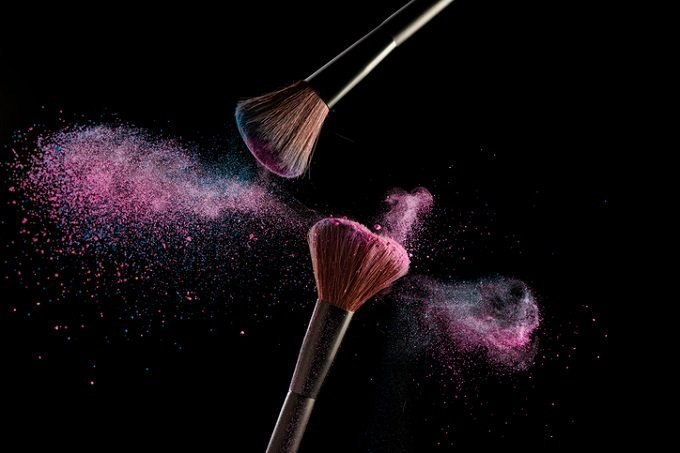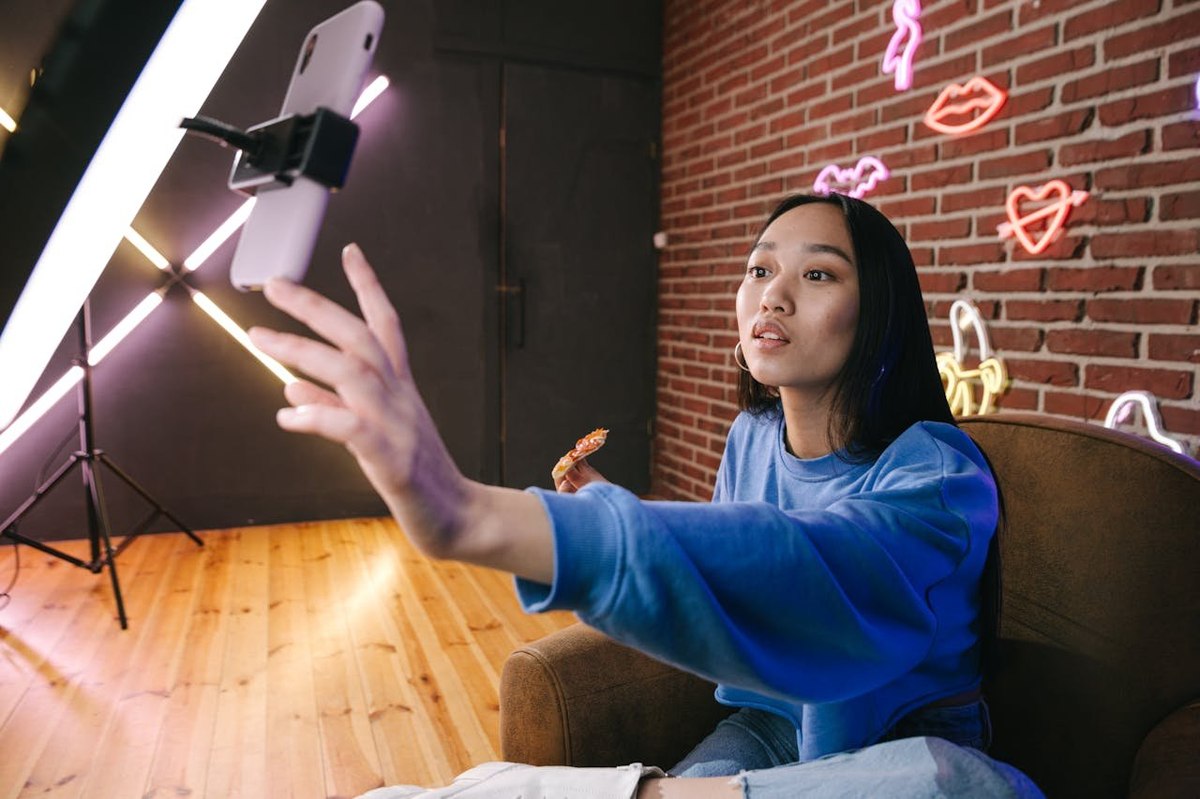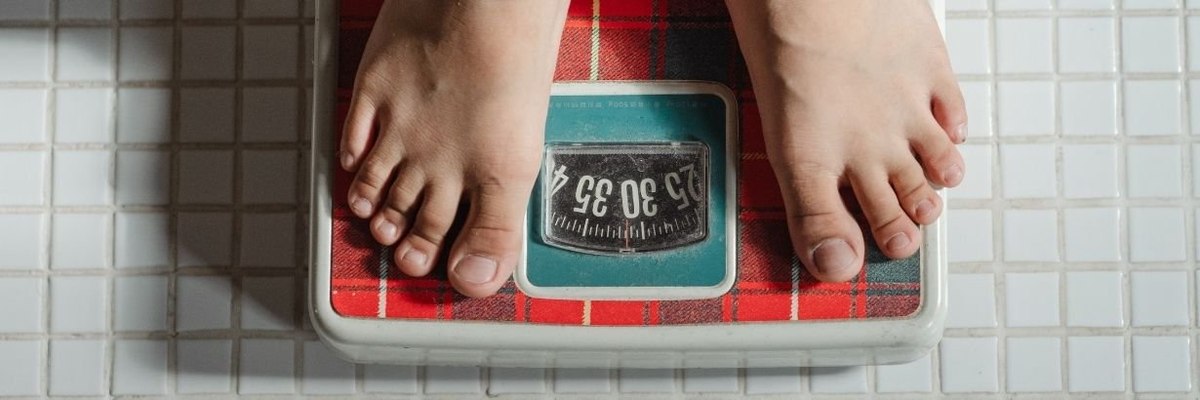
Global: Advertising and body image
As cosmetics multi-national Lush withdraws from social media on mental health grounds this month, a YouGov Profiles study across five diverse markets reveals that significant shares of consumers feel that advertising plays a role in how they perceive their body image. At least a quarter - and up to a half - of consumers in each individual market report feeling that way.
Consumers in urban India (47%) are the most likely to agree that advertising has an impact on their perception of their body image but that strength of feeling is not mirrored everywhere. In Germany, only a quarter of consumers (26%) feel the same.
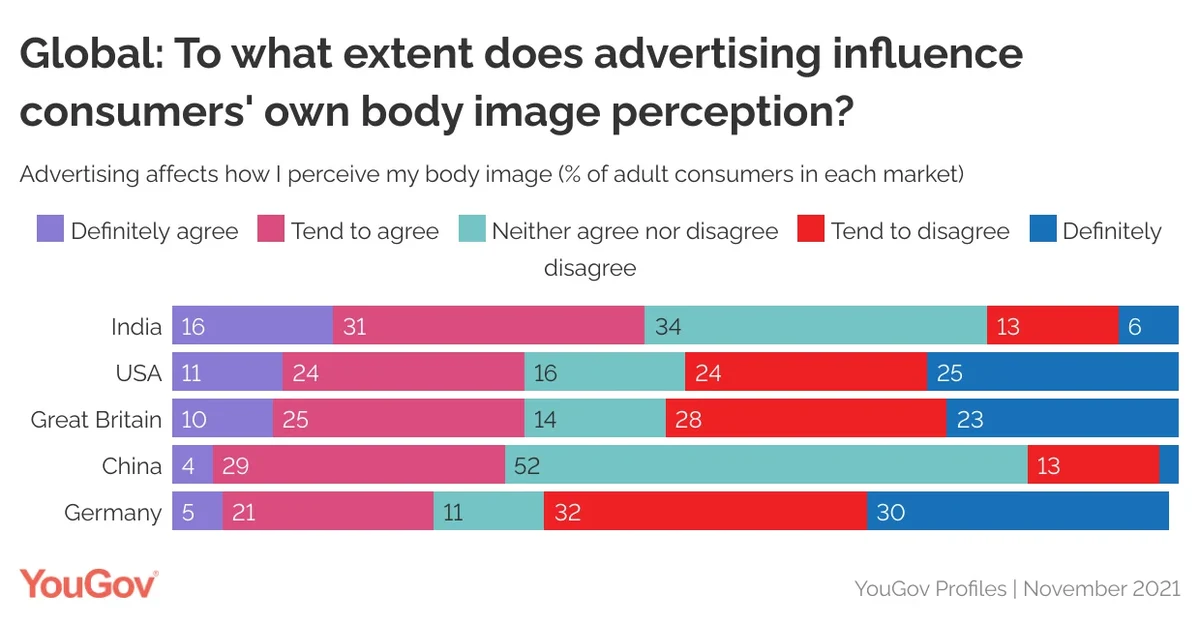
Consumers in the US (35%), Britain (35%) and China (33%) returned similar results with about a third of those polled agreeing that advertising affects how they perceive their body image. But the scale of agreement varies. In China only one in 20 consumers (4%) say they ‘definitely’ agree, while that number shoots up significantly in the US (11%) and Britain (10%).
Interestingly, consumers in China are far likelier than those elsewhere to be sitting on the fence. Half of them (52%) say they neither agree nor disagree with the statement about advertising’s influence on their perception of body image. And only one in seven consumers there say they disagree with the statement (15%), which is the lowest figure of all markets.
Germans are four times likelier to disagree with the statement than the Chinese, with three in five (62%) saying they don’t feel advertising impacts their perception of their body image. A fifth of Indians (19%), and about a half of Brits (51%) and Americans (49%) also disagree with the statement.
A look at a gender-wise breakdown reveals an interesting insight. Women admit that advertising influences their perception of their own body image in greater numbers than men in the Western markets – Britain, the US and Germany. But there is no gender-based variance noted in Asian markets India and China.
The male-female disparity is strongest in Britain, where only 25% of men say that advertising affects how they view their body image compared to 43% of women. In the US, three in ten men (31%) say they 'definitely' or 'tend to' agree that advertising has an influence compared to two in five women (38%). The difference is further diminished in Germany (25% men vs 28% women). Almost half (47%) of both men and women in India agree with the statement. There is no statistically significant variance between the genders in China either (33% men vs 32% women).
Methodology: YouGov Profiles is based on continuously collected data and rolling surveys, rather than from a single limited questionnaire. Profiles data referenced is based on a sample size of 4,584 to 95,056 people. Online interviews were conducted between November 2020 – November 2021. Profiles data is nationally representative and weighted by age, gender, education, region, and race. Learn more about YouGov Profiles.







